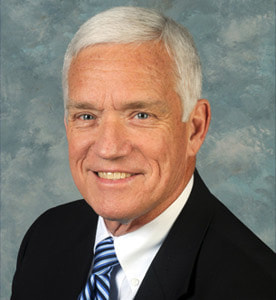|
To My Dear Friends,
We have officially crossed the halfway point of the 2022 60-day Regular Session. It has been an action-packed week with major legislation getting passed through the Senate. Three primary matters I want to update you on are motor vehicle taxes, legislation to address the state’s nursing shortage, and SB 138, the Teaching America’s Principles Act, which cleared the Senate Education Committee on Thursday. As the Senate unanimously passed Senate Joint Resolution (SJR) 99 on Friday, February 11, members of the chamber strongly pressured Governor Andy Beshear to do what was right and exempt Kentucky taxpayers from increased motor vehicle taxes. We identified state law allowing his administration to exempt taxpayers from the artificially inflated taxes. For over a month, he denied he had the authority. In fact, his administration sent out a memorandum acknowledging and detailing the reason for the tax increase. SJR 99 was prepared to force him to take the action he was refusing to. Fortunately for Kentucky taxpayers, the Governor finally relented from his weeks of assurance that he could not do anything, and finally did as he signed an executive order that is essentially a copy/paste of SJR 99. Thanks to the public pressure placed on the Governor by the state Senate, Kentuckians will now be relieved from their inflated vehicle taxes, and those who have already paid will be issued a refund. Senate Bill 138 is a positive, landmark piece of legislation to preserve alignment of middle and high school instruction with American principles of equality, freedom, and personal agency. It sets out to be inclusive of historical topics, giving a list of “ingredients” which must be taught, but does not exclude. This allows educators the autonomy to create the “recipe” for teaching American History. One of the most headline dominating topics since the onset of the COVID-19 pandemic has been education, primarily deriving from parents' concerns about the quality of their child’s education and fears that students are being taught what to think rather than how to think. The behavior of special interests to not only ignore parents' concerns, but even mock and ridicule has heightened attention on school curriculums and educational standards. The groundswell from the public has been so strong, even places like San Francisco are recalling school board members. Elections across the nation, most notably the gubernatorial election in Virginia, are demanding lawmakers take seriously the concerns of parents. The senate has identified a way to positively adhere to the desires that the public demands. The key tenets of SB 138 are to teach the value of American democratic principles of equality, freedom and individual rights: the understanding that in America, regardless of race, sex, or socioeconomic status, personal agency and resilience afford citizens the power to succeed; and lastly, the understanding that although slavery and post-Civil War laws and discrimination were contrary to our founders’ original intent for life, liberty and the pursuit of happiness, that defining racial disparities solely on that legacy is destructive to our nation’s unity. It’s noteworthy that teaching these principles does not exclude the teaching of controversial aspects of our history. One of the most important aspects of SB 138 is the requirement to instruct students using core primary source historical documents and speeches, including but not limited to the Declaration of Independence, the U.S. Constitution, and the Gettysburg Address. Through studying the original documents, students are able to get a window into the minds of our country’s founders and the ideals that make America the country she is. SB 138 also sets the parameters for teacher training, allowing them to choose whether to engage in diversity-based professional development. It prohibits assignments, projects or extra credit on politics, social-policy or lobbying activities for which a student or their family objects. As a career hospital administrator and life long patient advocate, I’m extremely pleased with the introduction of Senate Bill 10. For decades, our rural hospital systems have been strained by lack of resources and the ability to hire personnel. SB 10 has been designated priority legislation and will address the ongoing nursing shortage that stresses Kentucky’s healthcare system. The nursing shortage is not a new challenge to the Commonwealth, but the COVID-19 pandemic has exacerbated the problem. SB 10 aims to alleviate the shortage by tackling several issues within the profession, making it easier to accept nurses from other states and expedite licensing while not sacrificing quality of care. One area of focus includes the removal of arbitrary caps on nursing education programs. This codifies and extends provisions of the governor’s executive order. SB 10 would also restructure the KBN to be more reflective of Kentucky’s geographical diversity and most importantly bolster the voices of practicing nurses by requiring 10 board members be a practicing nurse. Additionally, the bill implements legislative oversight of nominations by requiring Senate confirmation of members. Two significant provisions of the bill include reciprocity so more nurses from other states can practice in Kentucky. The Commonwealth currently has a compact with 24 states for reciprocity, but SB 10 opens possibilities for nurses in states beyond the compact. Those from non-compact states who are in good standing can get an immediate temporary work permit to go straight to work. The bill would recognize out-of-state licenses and create a process for foreign trained nurses who pass the National Council Licensure Examination test or a Commission on Graduates of Foreign Nursing Schools test to practice in Kentucky. Please be aware, I am here in Frankfort fighting for the best interests of our commonwealth’s rural communities. As I do with every vote that I cast, I always keep what is best for the 5th district at the forefront of my mind. Please do not hesitate to reach out with any questions or comments about these or any other public policy issues. You can contact me toll-free at 1-800-372-7181 or email me at [email protected].
0 Comments
Your comment will be posted after it is approved.
Leave a Reply. |
Archives
July 2024
|
|
Copyright 2014-2024 The Edmonson Voice.
The Edmonson Voice logos are registered trademarks. Call or text: 270-597-6550 [email protected] PO BOX 94 BROWNSVILLE, KY 42210 CLICK HERE FOR DEADLINE INFO |








